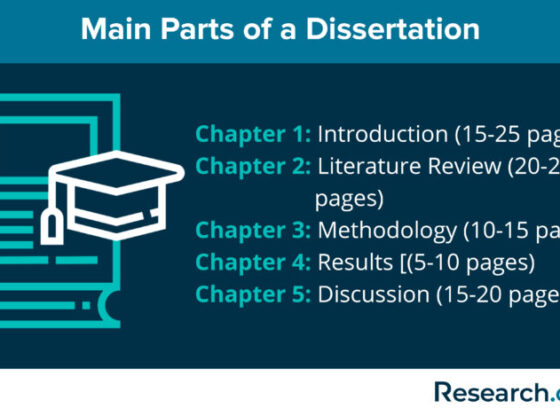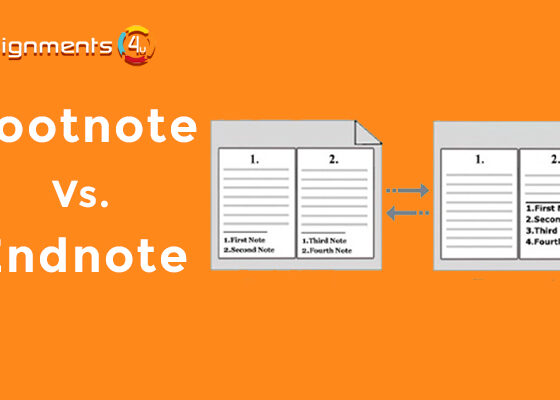Reasons Why Your Articles Aren’t Ranking in 2024
Revolutionary changes and transformations are already happening in almost all sectors in the current context. All the businesses that are primarily focused on the online routes with their global target markets can’t rule out such metamorphosis and thus adopt all those means as if following the tide for sure success to retention strategies. If you want to know why your blogs and articles aren’t ranking, read this post. We have accumulated all prospective reasons why your articles aren’t ranking in 2024.
Related: Reasons Your Blogs Don’t Rank Organically
For example, you may have heard a popular saying that “content is king.”. Why it remains relevant even today while the entire digital world is constantly adapting to each and every newly introduced communication strategy as a feasible infrastructure
Always remember this proven fact: if your content marketing strategies are in place and right in order, then none can stop you from securing your place on the first page of Google with the constant rankings being achieved. It helps you to start building traffic, acquiring new customers, and boosting brand awareness in the shortest possible time period.
That is why reputed companies and webmasters ensure the frequent publishing of fresh content to meet the set purpose of proving their mettle.
Some Key Stats of Publishing Blogs:
- 1.26 billion (approx.) live websites exist today, and the number continues to grow uninterruptedly.
- Blogs ensure that websites get 434 percent more indexed pages and 97 percent more indexed links.
Suppose you have done your market research, read the consumer behavior as well, created unique content too, and last but not least, published content on your website yet failed to get noticed. What steps should you take in such situations? If you don’t find the pages ranking on search engines, even after a few months, you need to look out for the reasons and their solutions without any further delay.
In fact, you’ve done everything you knew to rank your pages, but still, for certain known or unknown reasons, it just didn’t work. Obviously, that situation is the most frustrating one for you. If you fail to avoid such situations, you will have to shut your company down today or tomorrow. So, make sure that your articles and blogs rank organically in the search engines. Such cautious approaches, by keeping the caveats in consideration, will greatly help you avoid facing the bad omen.
Why don’t your blog posts and articles rank in Google searches?

In this post, we have enlisted 10 probable reasons why search engines aren’t picking up your content. Unless your articles and blog posts are ranking well in the search engines, you’re not going to improve traffic to generate more leads. If such is the situation, then all your efforts go in vain. Here are certain effective guidelines that should be followed to have that charismatic impact.
1. You Don’t Choose Your Topics Carefully
There are hundreds of factors that search engine algorithms consider before ensuring the placement of a web page in searches. Such factors range from your link profile, mobile optimization, and Title Tag Optimization to your page speed, among others.
Before moving ahead to the technical point of view, we should also discuss your topics. Choose the topics carefully.
- Are the topics relevant to the industry?
- Use the latest and genuine sources
- Will the topics be useful to wider audiences?
If your posts are not original, hardly authoritative, or relevant to the web pages where they would be posted, rewrite them and fix the issues to avail the desired benefits.
2. You Don’t Optimize Your Posts
If you don’t optimize your posts, then you are surely going to miss out on a chance to improve the ranking of your web pages. And, thus, you fail to attain the organic traffic that you had expected to seek. Whenever you are creating online content, you should think about the readers first by keeping yourself in the readers’ perspective. By doing that, you are definitely assured of not only ranking but also engaging the readers to the best extent possible. While writing the posts, keep in mind that they are being optimized for both search engines and for loyal and potential audiences as human readers.
Things to keep in mind:
- Write Great Titles
- Use Fresh Keywords
- Use Keywords in Your URL Structure
- Create a META Description
- Ensure Internal and External Linking
3. You Don’t Update Your Old Posts
We are aware of the fact that relevant content infused with long-tail and short-tail keywords will help your website find a place in the organic rankings. But with time, your content can start going out of the search. In fact, a website can also begin to decline in the rankings if the regular update of the old content is ignored. So, you must start updating your old posts to maintain the ranking of your website.
Technically updated websites with their old domains hold a certain weight as a key factor in determining organic rankings. But it won’t be much help if your contents are stale. Search engines give priority to websites with relevant, authoritative, and optimized content.
4. You Don’t Build Backlinks
You cannot imagine a good organic ranking for your content if the post has weak inbound links. One of the vital ranking factors is high-quality and relevant backlinks. Apart from the relevant content, you should equally create some quality inbound links for the content to rock, thus literally creating wonders.
Search and replace broken links with quality sources. The authority of a website comes with a robust backlink profile. Be Handy with simple ways to get more people to read your blog.
5. Your Word Count is Not Sufficient
Create rich or long-form content, say at least 2000+ words of high-quality and well-researched blog posts. It will help you generate backlinks, improve the rankings, and therefore boost traffic.
If you are busy and don’t have much time to write 2000-word blogs, then you must at least consider 1200 as the minimum word limit. Your primary goal should be to feed the audience with the right and accurate information that comes from the proper sources. Say it in 500 words; you won’t be able to tell your story in detail.
6. Your Site Has Duplicate Content Ranking
Though having duplicate content may not seem so bad, it can have quite an impact on your site’s rankings. If you have put a lot of effort into creating content, but the views are getting divided between the original and duplicate, it makes no sense. It results in both pages performing poorly, as opposed to the original doing well. In terms of its searchability, Google may end up finding the wrong page. If you want SEO tactics to work well for you, you must be careful that you don’t split the SEO benefits between duplicates.
Duplicate content on your website is one of the potential reasons why your articles and blogs aren’t ranking in 2024.
7. Your Website is Too Slow
To ensure an efficient user experience, it is essential to ensure fast page loading. Google ranks websites according to how quickly the site loads, so you must work on yours. There are two reasons for this. Firstly, Google does not want people to wait for the website to load longer than people want to stay. Secondly, slow load time implies an increase in bounce rate, which is harmful to your rankings. There are ways to audit site speed so you can address and fix the issue.
8. You are Not Active on Social Media
Social media campaigns and their implementations have become game-changers for businesses. It has become so important to be active on social media. It also allows you to interact better with your potential customers as well as your current ones. Furthermore, social media has also adapted methods of marketing and advertising that work well in your favor. But most importantly, your activity on social media will help determine how you rank on Google.
It recognizes social signals to determine which websites are active and which are not. Being more active on social media can be as simple as sharing your articles on Facebook or posting related pictures on Instagram. The more active you are on social media, the better your website will rank.
9. You Don’t Post Consistently
Consistency is critical in the digital world. It is not enough to randomly post articles or content now and then. It has become essential to have a consistent posting schedule and strategy to see actual growth for your website. The more content you create, the better it is. But do ensure that it is quality content. Each quality and people-centric content will give you a better chance of ranking on Google.
10. You Don’t Have a Mobile-friendly Website
People today tend to do most of their searching on their phones. That is why you should be able to cater to different kinds of devices, including mobiles. Google has shifted to mobile-first indexing, which means it looks at your mobile site before your desktop site. There are tools you can use to check if your site is mobile-friendly. If not, you can depend on a good SEO writing agency that will know how to write the best content and plan strategies according to Google guidelines.
11. No-Index Blog Post
Among all other reasons, one of the most common reasons your blogs and articles aren’t ranking is that you have accidentally recommended that Google not index your blogs and articles. It happens whenever a user ‘no-indexes’ a blog post. Also, it happens if your SEO plugin needs to be properly set up. Also, you may not have indexed the entire website. Check all these problems to fix these errors.
12. You have a Brand New Website
Another possible reason your blogs and articles aren’t ranking is that your website is new. Google needs time to index new websites. If this is the case, you can wait and stay patient. To speed up the process, you can install a powerful SEO plugin and set it correctly. Or else you may submit the XML sitemap to Google Search Console. It will allow you to inspect every post’s status.
13. Fierce Competition
If your blogs and articles have been indexed and crawled but still need to get ranked on the page for the target keyword, it means the competition is fierce for that keyword. It might be the reason why your blogs and articles aren’t ranking. Make sure that your target keyword is independent of high-authority websites. And the truth is that it is difficult for small blogs and articles to compete against world-class websites. So you need to do good keyword research and target less competitive keywords.
14. You have Targeted the Wrong Searcher’s Intent
People often need help developing relevant blogs and articles related to the targeted term. ‘Search Intent’ is that thing that catches the bloggers. In short, it is about what the searcher wants to get after typing in that particular search term. Google uses data from billions of searches that it processes regularly to understand the searchers’ intent whenever they type a specific query into Google. And if your blog post differs from that ‘searcher intent’, there is a high chance that it will not rank for that particular search term.
15. You have Low-Quality Content
One thing that you must know is that Google always prioritizes high-quality content. You need to create high-quality content to constantly enhance your rankings. The quality of all your blog posts and articles matters. Your content must be comprehensive, unique, error-free, mobile-friendly, and authoritative. If your content matches all the criteria mentioned, it will rank better on the Google search engine results page.
Low-quality content on your website is one of the potential reasons why your articles and blogs aren’t ranking in 2024.
16. Poor User-Experience
If your blogs and articles are not delivering the optimum user experience, it will create a problem in terms of ranking. User experience is all about how enjoyable and easy your blogs and articles are and how much interaction the prospects can have. Use subheads, images, bullets, and quotes to break up the posts. Use short paragraphs and sentences and an easy-to-read font. And always make sure your website is fast.
We have found all the prospective reasons why your articles aren’t ranking in 2024.
To Sum Up: Why Blogs and Articles Aren’t Ranking
If your blogs and articles aren’t ranking, then don’t panic, but take certain strategic steps instead. First of all, find out the reasons, and equally, think about the ways to find the proper solutions to use. We have elaborated on a few of the most common reasons why many blogs and articles don’t rank.
Mobile speed, page-load timing, and other on-page problems can also drive users away from your website. If such technicalities are not giving you trouble, read through our 5 points again to apply them for better outcomes.
If you need assistance with SEO-optimized blog writing services and numerous other content creation solutions, do let us know. We are a reputed content writing agency with a robust team of skilled and expert content writers, editors, and proofreaders. We are here to offer you extensive solutions in multiple niches. Apart from content writing services, our content editing services are equally sought after. That is why we are already leaving an irrefutable impact and impression in the industry.
You May Also Like: How to get more readers for your blog posts













Peculiar article, exactly what I wanted to find.
Thanks Gerald!